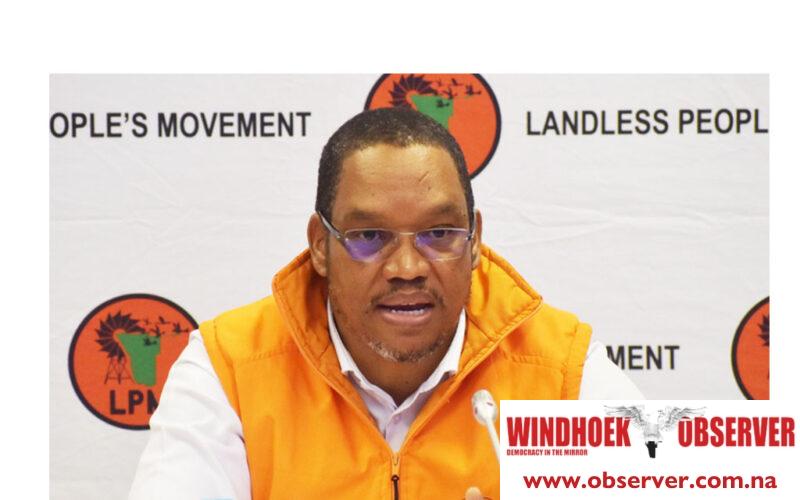Hertta-Maria Amutenja
The Landless People’s Movement (LPM) has vowed to take decisive steps on land reform and governance in Namibia as part of its new manifesto.
The party launched its election manifesto in Rundu over the past weekend.
LPM president, Bernadus Swartbooi asserted the party’s commitment to implement key policies that resonate with citizens and address pressing issues facing them.
Swartbooi emphasised that the manifesto is a ‘blueprint for action, focussing on land redistribution and the empowerment of marginalised communities.’
“We have heard the cries of our people. Land is not just a commodity; it is a right. We will prioritise the needs of our citizens and ensure that land is accessible to those who require it most,” he stated.
The LPM’s strategy includes demanding that the government implement the 1991 Resolution on Land Reform and Agriculture effectively.
Swartbooi said the manifesto was written in response to ongoing frustrations among citizens regarding the slow pace of land redistribution.
According to the manifesto, land disputes have become a significant issue, with many cases highlighting the failure of authorities to act on land grievances.
Swartbooi stressed that the government must acknowledge public opinion.
“For too long, the needs of our citizens have been ignored. We are here to change that. Our manifesto is a commitment to our people, and we will hold the government accountable.”
He elaborated that the LPM aims to establish a platform for dialogue between the government and citizens to discuss land issues openly.
Also speaking at the launch, LPM youth command leader, Duminga Ndala shared Swartbooi’s sentiments.
“We will not rest until the government acknowledges the urgency of land reform. The current pace is unacceptable. We need tangible results, not empty promises,“ she said.
As part of its initiatives, the LPM plans to organize community forums aimed at educating citizens about their land ownership and use rights.
“Knowledge is power. We need to empower our communities to understand the laws and processes surrounding land ownership. Our people must be informed to advocate for themselves,” said Ndala.
She added that these forums would serve as a means to gather feedback from citizens to refine the party’s policies.




